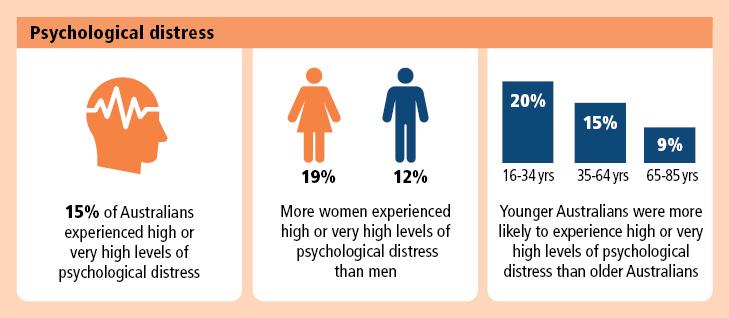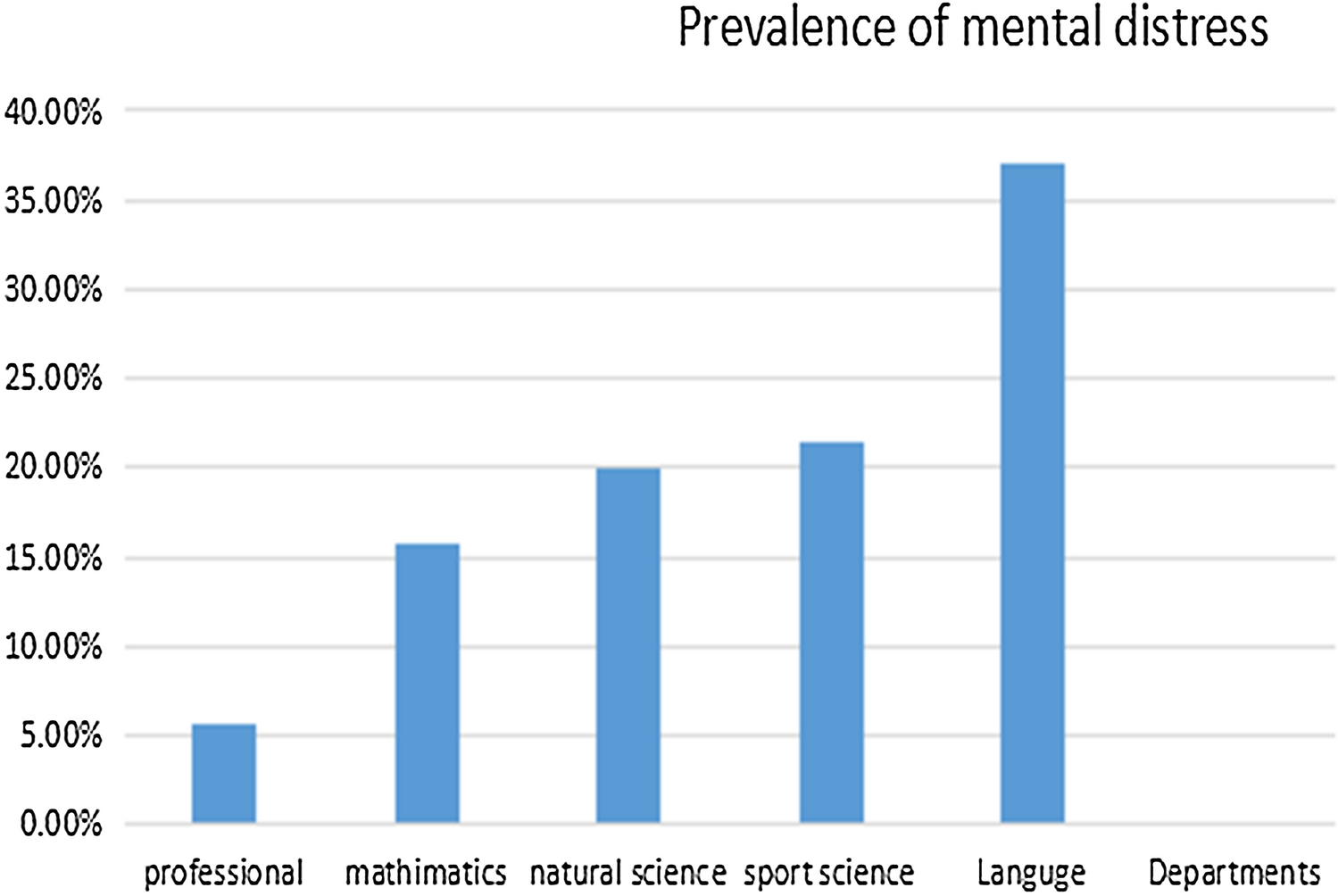Prevalence of psychological distress and mental disorders, and use of mental health services in the epidemiological catchment area of Montreal South-West, BMC Psychiatry
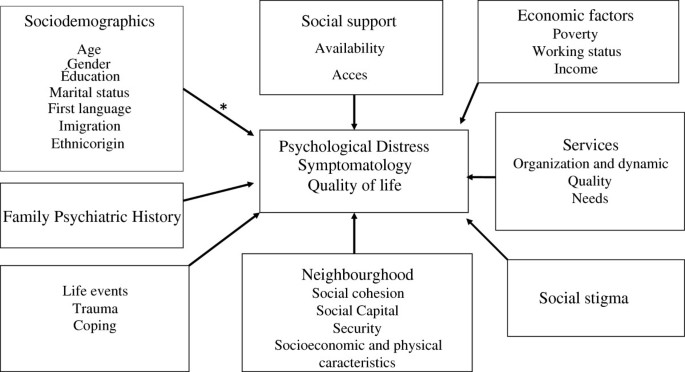
Background This report presents the initial results of the first Epidemiological Catchment Area Study in mental health in Canada. Five neighbourhoods in the South-West sector of Montreal, with a population of 258,000, were under study. The objectives of the research program were: 1) to assess the prevalence and incidence of psychological distress, mental disorders, substance abuse, parasuicide, risky behaviour and quality of life; 2) to examine the links and interactions between individual determinants, neighbourhood ecology and mental health in each neighbourhood; 3) to identify the conditions facilitating the integration of individuals with mental health problems; 4) to analyse the impact of the social, economic and physical aspects of the neighbourhoods using a geographic information system. 5) to verify the adequacy of mental health services. Method A longitudinal study in the form of a community survey was used, complemented by focused qualitative sub-studies. The longitudinal study included a randomly selected sample of 2,433 individuals between the ages of 15 and 65 in the first wave of data collection, and three other waves are projected. An overview of the methods is presented. Results The prevalence of psychological distress, mental disorders and use of mental health services and their correlates are described for the first wave of data collection. Conclusion Several vulnerable groups and risk factors related to socio-demographic variables have been identified such as: gender, age, marital status, income, immigration and language. These results can be used to improve treatment services, prevention of mental disorders, and mental health promotion.

Co-morbidities of mental disorders and chronic physical diseases in developing and emerging countries: a meta-analysis, BMC Public Health

Using GIS for Substance Abuse Research and Intervention

PDF) Predictors of Psychological Distress in Low-income Populations of Montreal

Integrative PheWAS analysis in risk categorization of major depressive disorder and identifying their associations with genetic variants using a latent topic model approach

To what extent do social support and coping strategies mediate the relation between childhood maltreatment and major depressive disorder: A longitudinal community-based cohort, Development and Psychopathology

Using GIS for Substance Abuse Research and Intervention

Une validation de la forme abrégée de l'Échelle d… – Santé mentale au Québec – Érudit

CIHR Team in Social and Psychiatric Epidemiology - The Social and Psychiatric Epidemiology Catchment Area of the South West of Montreal - The Douglas Research Centre

Incidence of mental disorders in the general population aged 1–30 years disaggregated by gender and socioeconomic status
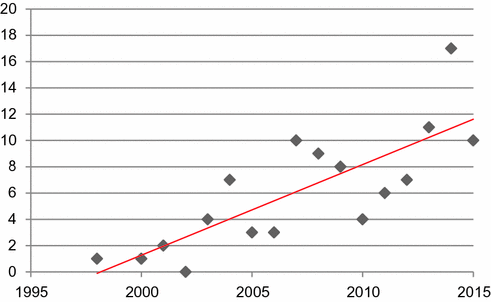
Using GIS for Substance Abuse Research and Intervention

Inpatient mental health hospitalizations in the Chicago metropolitan area, IL, USA: A spatial and demographic analysis - ScienceDirect

PDF) The predictive value of mental health for long-term sickness absence: the Major Depression Inventory (MDI) and the Mental Health Inventory (MHI-5) compared
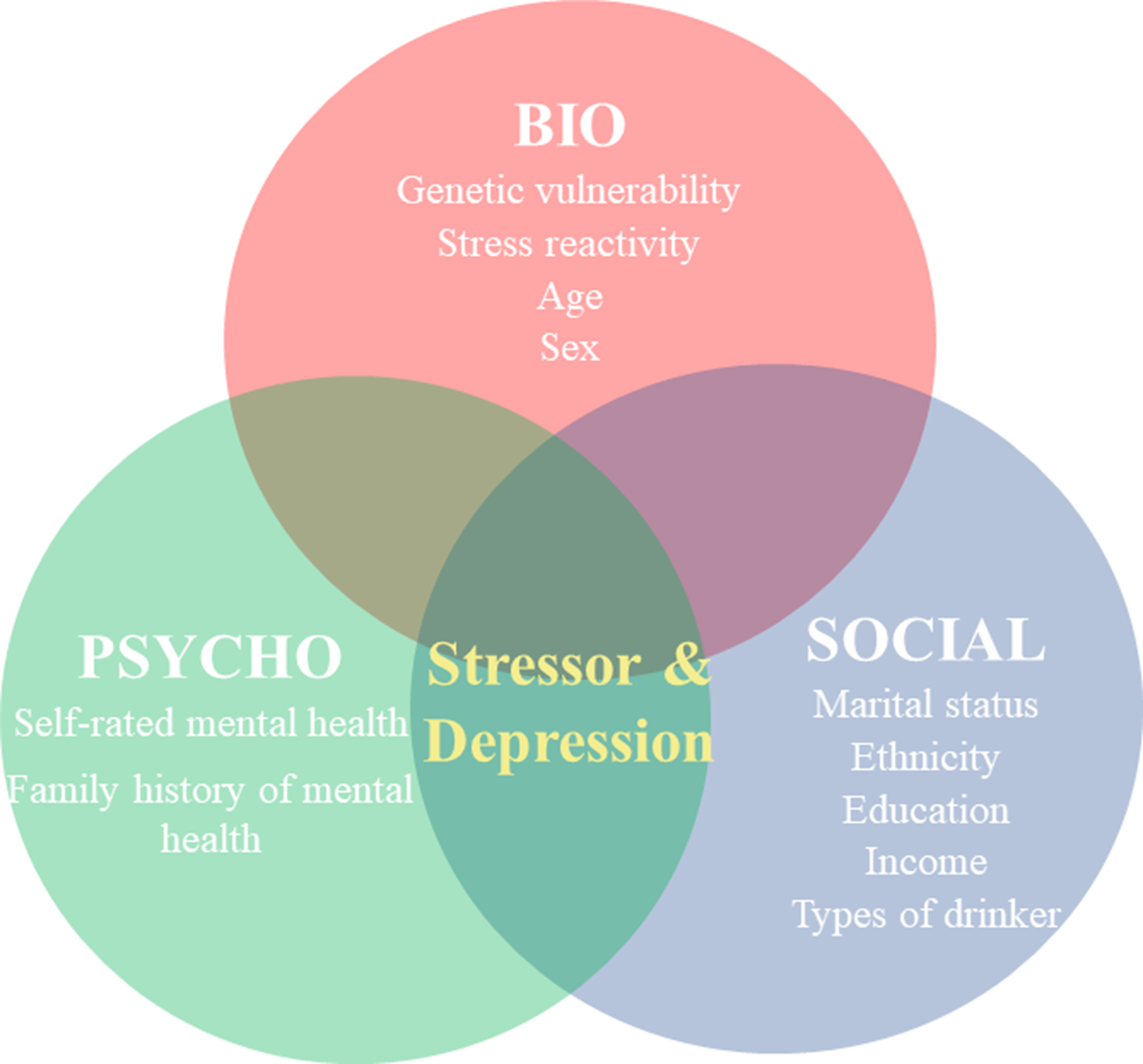
Specific and cumulative lifetime stressors in the aetiology of major depression: A longitudinal community-based population study, Epidemiology and Psychiatric Sciences
Trajectories of Psychological Distress during the COVID-19 Pandemic among Community-Dwelling Older Adults in Quebec: A Longitudinal Study. - Spectrum: Concordia University Research Repository
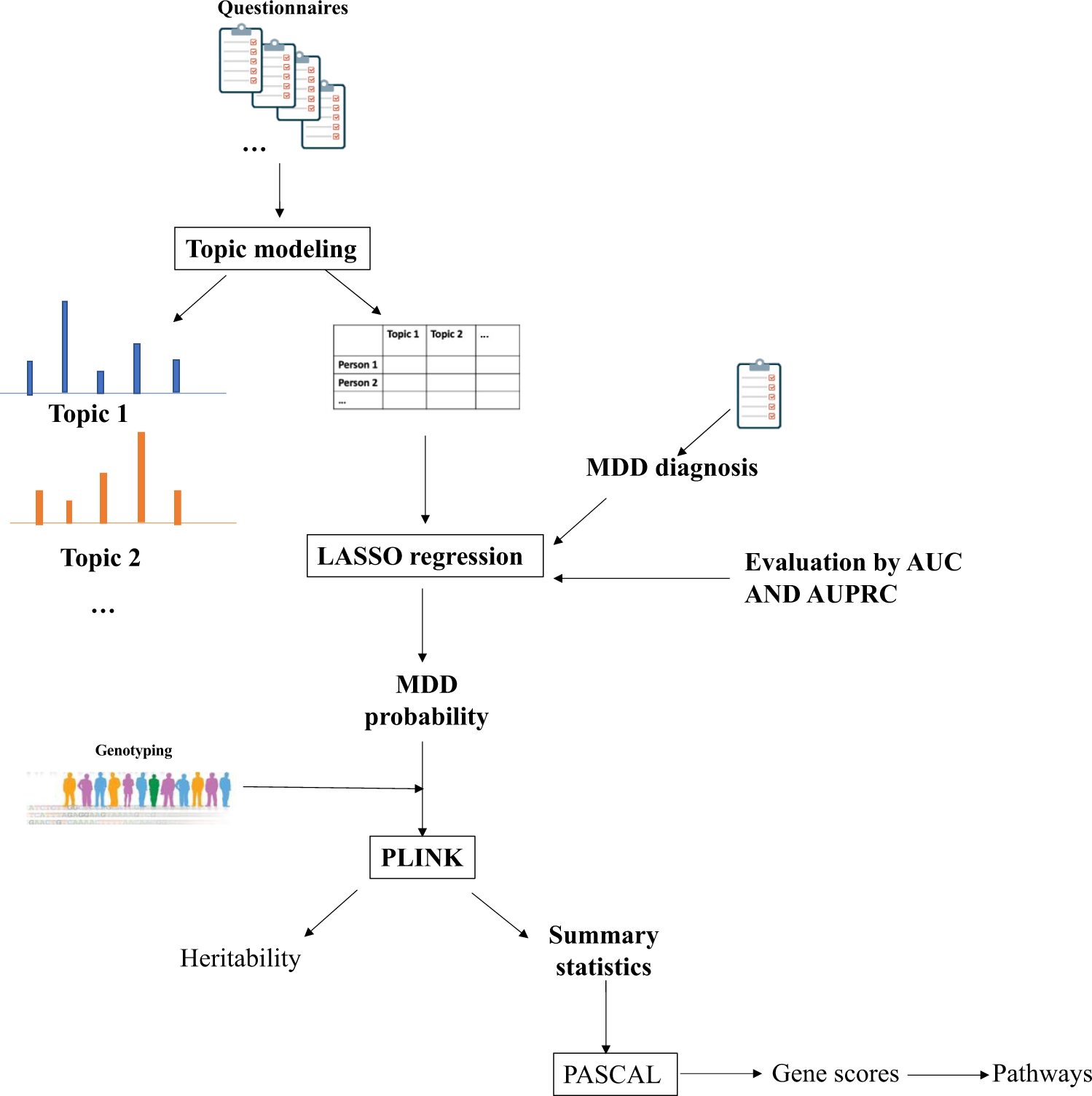
Integrative PheWAS analysis in risk categorization of major depressive disorder and identifying their associations with genetic variants using a latent topic model approach

